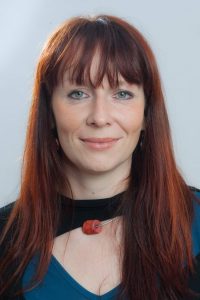1 November 2017
Speaker: Esther-Miriam Wagner (Woolf Institute, Cambridge University)
Title: Social transformation and language change in medieval Jewish Arabic
Venue and Time: room 3.58 (John Percival Building), 12.10
Abstract:
This talk will investigate the relationship between language change and the transformation of Egyptian Jewish religious and social identity as attested in the sources of the Cairo Genizah.
What we call the Cairo Genizah are the contents of a storeroom in the Ben Ezra synagogue in Old Cairo, in which Egyptian Jews – following the religious commandment that any piece of paper or parchment containing the name of God cannot be destroyed, thrown away or burnt – deposited anything they wrote, over the course of hundreds of years. The Genizah has preserved hundreds of thousands of leaves of documents and literary works from the 7th to the 19th century, written mainly in the languages Hebrew and Arabic.
Much of the Arabic Genizah material differs from contemporary Muslims sources in the alphabet in which they are written – the Jewish writers mostly employed Hebrew script in documents issued for intra-communal communication. Still, during the early medieval period, under the rule of the Fatimids and the Ayyubids, they followed to a large degree linguistic norms and conventions found similarly in contemporary Muslim Arabic texts. In fact, certain authors happily switched between Arabic and Hebrew script when writing Arabic in their correspondence.
With increasing segregation between the different religious communities as a consequence of the social changes brought about by conquests from the East and the breakdown of the Eastern Mediterranean economy, however, we see an increasing return to Hebrew and other linguistic conventions that have a greater ‘Jewish’ marking.
This paper will also address a number of other issues regarding communication strategies on inter-communal and intra-communal levels: do Arabic interlocutors belonging to religious communities on the periphery of power tend to use more regional and vernacular forms with one another? How important is the role of geographically mobile community members, such as merchants, for the introduction of progressive language forms? And, who are the protagonists setting linguistic standards?

Esther-Miriam Wagner (PhD 2008 University of Cambridge) is a Senior Research Fellow at the Woolf Institute and an Affiliated lecturer and Associated researcher at the University of Cambridge. Her research interests include Genizah Studies, Arabic linguistics and language history, Yiddish, sociolinguistics and Muslim-Jewish relations. She is the author of ‘Linguistic Variety of Judaeo-Arabic letters from the Cairo Genizah’ (Brill 2011), and the editor of the themed volumes ‘Scribes as agents of language change’ (de Gruyter Mouton 2013) and ‘Merchants of innovation. The languages of traders’ (de Gruyter Mouton 2017). Her latest publications are concerned with codeswitching of Hebrew in Judaeo-Arabic and Yiddish, with subordination in late medieval Judaeo-Arabic and with scribal practice in the Cairo Genizah.